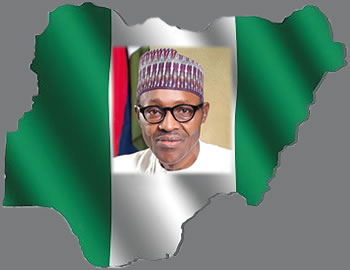THERE is a sense in which official policy reversals demonstrate political sagacity and an understanding of the situational approach to policy formulation and implementation by public officials. But there are also instances where the preponderance of stop-go policies epitomizes incompetence and laziness in terms of the depth of the thought process behind the policies in the first place. The polity has, in recent times, witnessed a number of policies that were in a state of flux. Apparently, many of such policies would not have gone in the directions they did if the decision makers had been on top of their game, acting in the overall interest of the citizenry.
Three recent examples will suffice. The Joint Admissions and Matriculation Board (JAMB) recently barred candidates awaiting results from sitting for the Universal Tertiary Matriculation Examinations (UTME) that it conducts yearly for persons aspiring to go to public and private tertiary institutions in the country. One of the implications of that policy was that hundreds of thousands of final-year students in senior secondary schools and other persons who are yet to have the qualifying Ordinary Level results would not have been allowed to apply, let alone considered for admission. That insensitive policy decision was taken even though it was well known that many of the awaiting-result candidates would have had the requisite O’Level results before the final stages of admission process commence in August. But JAMB apparently wanted to seek the easy way out by ignoring a lucid solution that exists in creating a window for the said candidates to upload their results on its website when they are released in August or even before then. It is gladdening that it has reversed this thoughtless policy, but the fact that it did so only after outcries from concerned members of the public puts a question mark on its ability to be innovative and to resolve simple challenges without prompting.
Again, recently, the country’s official currency, the naira, started to gain strength against the dollar when items which were hitherto ineligible for official foreign exchange (forex) such as school fees, Personal Travel Allowance( PTA), hospital bills and others were cleared for official transactions. This was followed with the Central Bank of Nigeria’s (CBN) funding of the forex market to defend the naira. And the results started to come. This CBN U-turn, as gladdening as it is, did not happen until the naira had been taken to the cleaners against major foreign currencies, which makes full recovery a Herculean task. That was pretty avoidable. Agreed that the initial lean oil receipts created paucity of dollars, but if support had come the way of the naira in proportion to the dollars available then, it would obviously not have experienced a free fall. Policy formulation and implementation ought to have gone past the stage of unwarranted experimentations.
And yet another faulty official policy decision worthy of mention relates to the Abuja International Airport, currently under repairs. All flights destined for Abuja have been re-routed to the Kaduna airport. But it is rather strange that the use of helicopters to convey those who might not want to go by road from Kaduna to Abuja was not considered by the Aviation Ministry while looking at measures to take to ameliorate the hardship of air passengers. The same availability of helicopter shuttles could also have been offered as an attraction to appease the foreign airlines that were reportedly uncomfortable with the Kaduna arrangement. But no one seemed to think in that direction. Rather, the somewhat convenient and defeatist banning of helicopter shuttle between Kaduna and Abuja was imposed, only for the ban to be lifted few days later when its economic inexpediency dawned on the authorities. In this case as well as the others, there is the temptation to take solace in the usual maxim, ‘better late than never.’ But the reality is that even lateness has consequences which can be quite painful, especially if it was clearly avoidable.
The common thread running through the instances of defective policy options is the absence of industry, diligence, thoroughness, commitment and passion on the part of public officials to proffer solutions to problems. They tend to prefer the easy way out, notwithstanding the outcomes and the consequences. Progress can hardly be made that way. The cited cases came to the fore because of their immediate and overt repercussions on citizens. But what happens in cases where important and sensitive official decisions are made that cannot be interrogated by the public because their effects, though unpleasant, are not immediate or obvious enough for them to see?
It is high time government began to take more than a passing interest in the quality of decisions made by public officials. The spate of suboptimal policy options in recent times is embarrassing and casts the government in a less than impressive mould.






